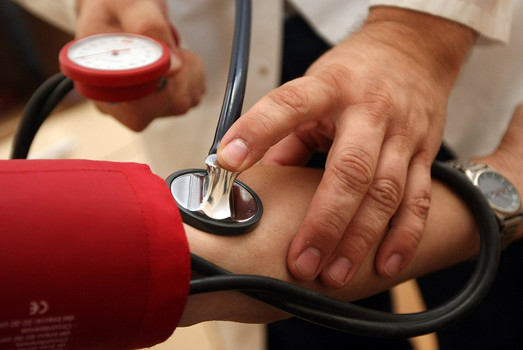Researchers by scientists at the National Heart, Lung and Blood Institute have concluded that the best lifesaving information for people 50-years old and up is to keep their blood pressure down below levels recommended just a few years ago. While earlier studies issued guidelines suggesting a systolic reading (the high number which measures pressure exerted by the blood while the heart is pumping) of 140 for healthy adults, and 130 for those with diabetes, the new findings state that both should maintain systolic pressure of 120 in order to help reduce the risk of cardiovascular disease. High blood pressure (aka hypertension) is the leading factor for heart attack stroke and kidney disease. The lower number, or diastolic reading measures the blood pressure when the heart is at rest between beats.
In fact, it has been shown that high blood pressure over time (not just a single episode) will result in thickening of the arteries,” according to Dr. Richard Schlofmitz, chairman of cardiology at St. Francis Hospital in Flower Hill, NY. He also added that although arteries naturally thicken as people age, hypertension can “exacerbate the problem.”
Although the NHLB Institute study was slated to continue for another year, Dr. Lawrence Fine, chief of clinical applications and prevention said that they decided to close the clinical research project a year ahead of schedule after concluding they had enough information and evidence that proved “treating blood pressure to lower standards in older and high risk patients can be beneficial.”
Note: In addition to arteriosclerosis (hardening of the arteries) hypertension is often precipitated by high cholesterol as well as smoking cigarettes, stress, obesity, high sodium intake, and susbtance abuse (both alcohol and drugs), as well as certain medications (including contraceptives) and high water retention.








